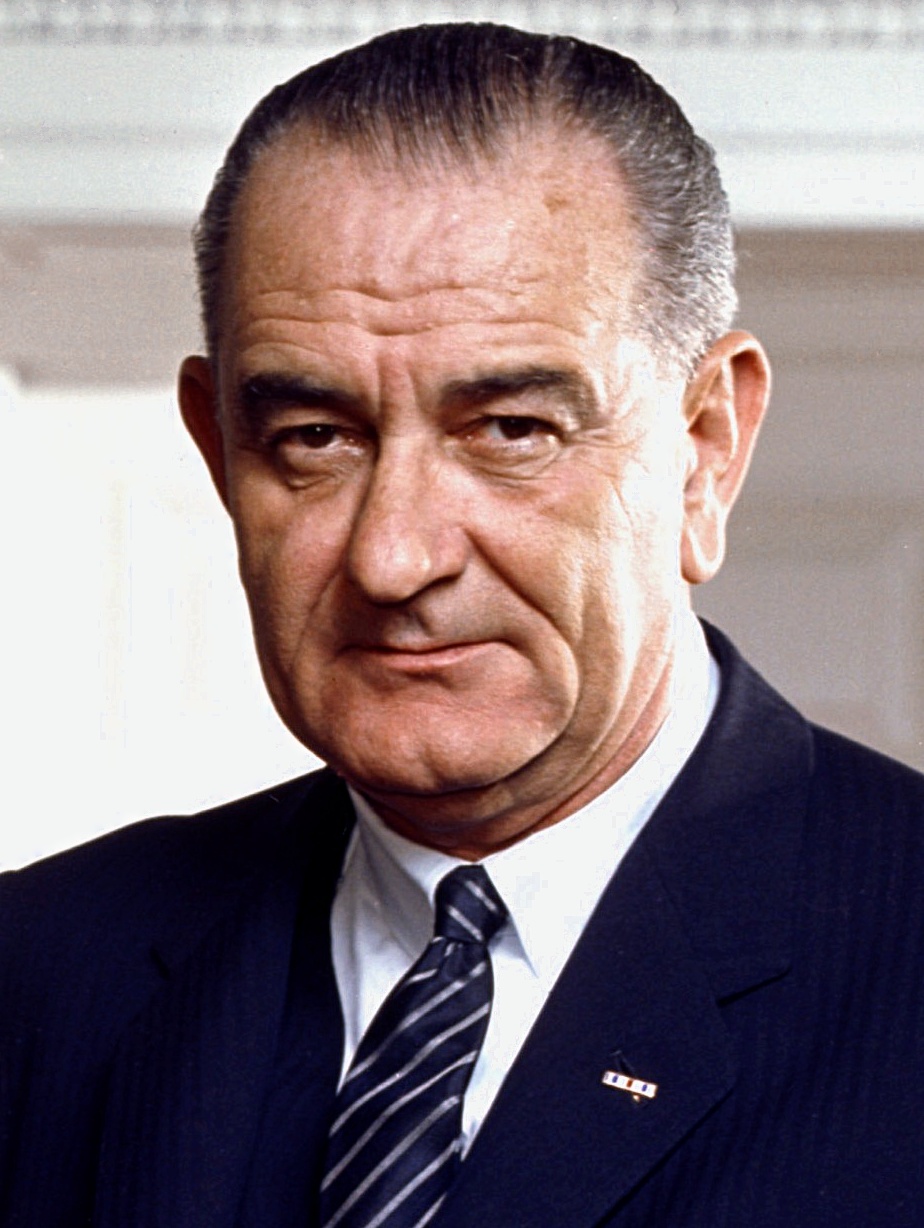Lyndon Baines Johnson , comumente LBJ, foi um político norte-americano e o 36º presidente dos Estados Unidos, cargo que assumiu após servir como o 37º vice-presidente dos Estados Unidos. Ele é uma das quatro pessoas que ocuparam os quatro cargos federais mais elevados por eleição nos Estados Unidos: representante, senador, vice-presidente e presidente. Membro do Partido Democrata do Texas, Johnson fez parte da Câmara dos Representantes entre 1937–1949 e do Senado entre 1949–1961. Após não ter conseguido a indicação para presidente em 1960, ele recebeu a oferta de John F. Kennedy para ser seu running mate na eleição de 1960.
Johnson ascendeu à presidência após o assassinato de Kennedy em 22 de novembro de 1963, completando o mandato de Kennedy e sendo eleito por conta própria com uma grande margem na eleição de 1964. Johnson recebeu grande apoio dos Democratas e, enquanto presidente, foi responsável por criar a legislação da "Grande Sociedade", que incluía leis que confirmavam os direitos civis, radiodifusão pública, Medicare, Medicaid, proteção ambiental, auxílio a educação e sua "Guerra a Pobreza". Ele era conhecido por sua personalidade autoritária e o "tratamento Johnson", sua coerção de políticos poderosos para avançar legislações. Durante os primeiros anos de sua presidência, a economia cresceu e milhões de americanos saíram da pobreza, especialmente por causa dos seus projetos de estímulo econômicos e sociais.Johnson adotou uma política externa voltada com o anticomunismo. Ele escalou a participação norte-americana na Guerra do Vietnã, indo de dezesseis mil soldados na região em 1963 para 550 mil no início de 1968, aumentando as fatalidades e diminuindo as chances de paz. O envolvimento gerou vários movimentos antiguerra principalmente em universidades de todo o país. Revoltas começaram a ocorrer em várias regiões e o crime nas grandes cidades aumentou em 1965, e seus oponentes passaram a exigir medidas de lei e ordem. O Partido Democrata dividiu-se em várias facções e, após não ter ido bem na convenção de Nova Hampshire em 1968, Johnson não conseguiu a indicação para tentar a reeleição, tendo que desistir da corrida presidencial em 1968. O Republicano Richard Nixon acabou por sucedê-lo. Após deixar a presidência, ele voltou para sua cidade natal, Stonewall, morrendo em 22 de janeiro de 1973.
O legado de sua presidência divide opiniões. Muitos historiadores argumentam que seu governo marcou o pico do liberalismo americano após a era do New Deal. Johnson é bem avaliado por muitos estudiosos e historiadores devido as suas políticas domésticas e a assinatura de diversas leis, incluindo de direitos civis, controle de armas e seguridade social. Apesar dos avanços internos, muitos o desqualificam como um bom presidente devido ao fiasco da guerra do Vietnã.
Wikipedia
✵
27. Agosto 1908 – 22. Janeiro 1973
